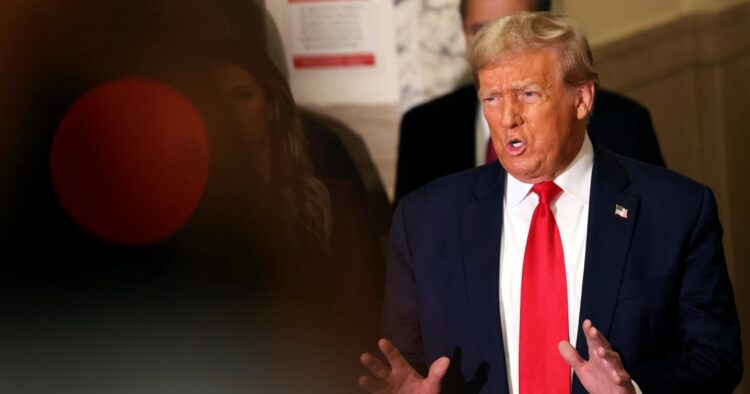The US Supreme Court is gearing up for two crucial cases involving former President Donald Trump, marking a significant moment in its history. These cases could have far-reaching implications for the 2024 presidential election.
One case revolves around the Colorado Supreme Court’s decision to remove Trump from the ballot, citing the 14th Amendment’s “insurrectionist” clause. Another case involves Trump’s appeal against a lower court’s rejection of his demand for absolute presidential immunity regarding his efforts to overturn the 2020 election.
These politically charged cases thrust the Supreme Court into the spotlight, reminiscent of its role in deciding the disputed 2000 election. Trump’s relentless efforts to discredit institutions and judges, coupled with his refusal to accept election results, further complicate matters.
Trump’s strategy involves discrediting the legitimacy of courts and judges, often attacking them publicly. His influence over supporters leads many to believe in conspiracy theories and view government institutions as corrupt, undermining the rule of law.
Chief Justice John Roberts faces a challenging task in protecting the court’s reputation amid heightened partisan tensions. Trump’s disregard for judicial independence and his transactional approach to appointing judges add to the complexity of the situation.
Despite efforts to insulate the judiciary from politics, Trump’s attacks on judges who rule against him pose a threat to judicial integrity. The Supreme Court’s decisions in these cases could exacerbate political divisions, especially if they go against Trump.
Trump’s response to adverse rulings is often marked by criticism and distrust of institutions, reflecting his self-serving interpretation of the law. His influence on public perception of the legal system risks long-term damage to democratic institutions.
In conclusion, the Supreme Court faces unprecedented challenges as it navigates politically charged cases involving Trump. The outcome of these cases will not only impact the 2024 election but also shape public trust in the judiciary and the rule of law.

















Comments